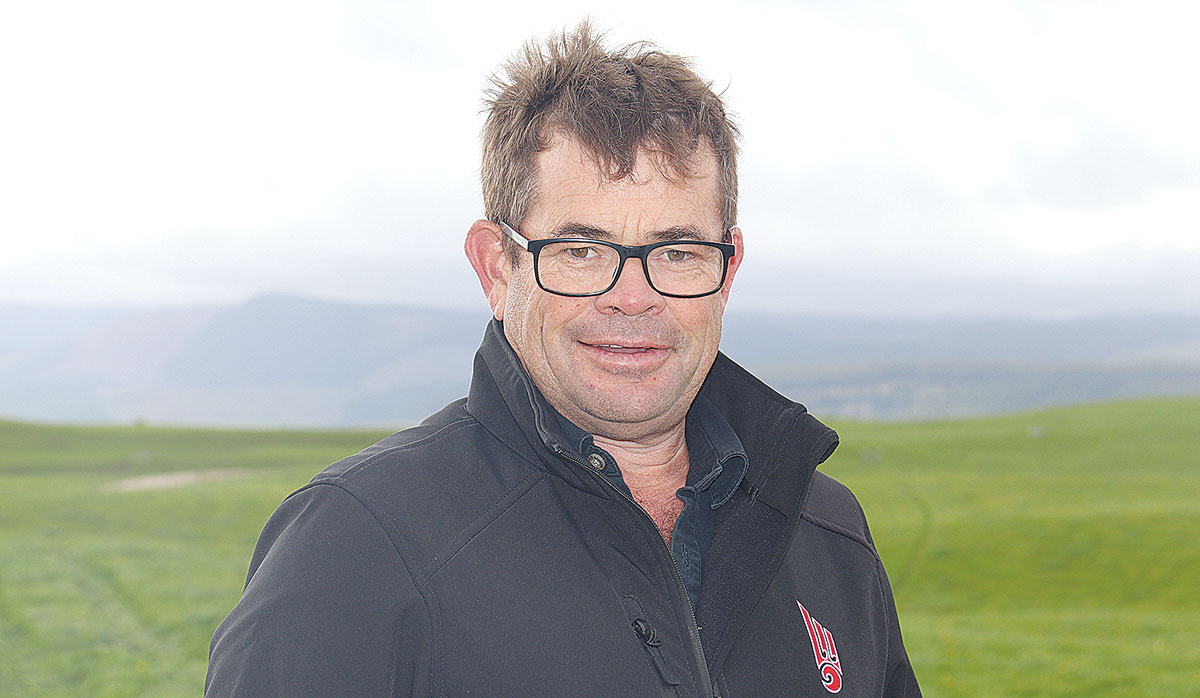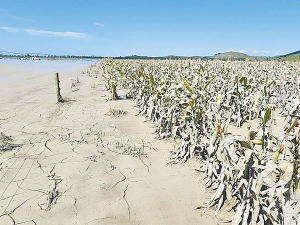One of the country's top Māori sheep and beef farms is facing a five-year battle to get back to where it was before Cyclone Gabrielle struck just over 14 months ago.
Wi Pere Farms, located just northwest of Gisborne, won the prestigious Ahuwhenua Trophy for the top Māori sheep and beef farm in October 2022.
The steep, hard hill country property consists of 4900 effective hectares, divided into two blocks, and carries 51,000 stock units comprising 32,400 sheep and 4600 cattle.
The farm is managed on behalf of the trust by Tim Rhodes, with fifteen full-time staff. The farm won praise from the judges of the Ahuwhenua competition who singled out its governance, farm management and the overall performance of the property. Those who attended the field day at Wi Pere were likewise impressed with what they saw.
Then came Cyclone Gabrielle and a whole set of other rain events which undid all the years of good work on the property. The rain brought down silt and slash and destroyed fences, farm tracks, irrigation equipment and other infrastructure leaving Rhodes and his staff with massive challenges. It's now over a year since the cyclone struck and Rhodes reflects on what they have been able to do.
"We have fixed most of the land that was covered in silt," he told Rural News.
"We had anywhere from a metre and a half to 200 millimetres of that on our flats and that's all been re-grassed. With the deep silt, we just direct drilled into pasture and used fertiliser to get it going, and the shallow stuff we flipped and mixed with the old topsoil," he says.
Rhodes says their irrigation equipment was damaged to some degree and that has now been fixed. But he says the more difficult and long-term issue is fixing the internal fences and having insecure internal paddocks is massively affecting their farming operation.
"We can't control stock properly and last winter we ran out of feed because we couldn't rotational graze and stock went everywhere. We couldn't finish as many bulls as we normally do because we didn't have any power and we couldn't subdivide our paddocks. This year it will be better, but it will still be a bit of a struggle until we get our fences up again."
 |
|---|
|
Wi Pere farm manager Tim Rhodes.
|
Rhodes believe it will take up to five years before the farms are looking as pristine as they were at the time of the Ahuwhenua competition. He says the repair work is very expensive and they couldn't afford to do this now, even if there was the labour to do the work. But he says labour is still a problem - especially getting the people with the right skills to do the work.
Rhodes says Cyclone Gabrielle has severely impacted the profitability of Wi Pere. They have had to buy in extra feed and have been unable to finish as many cattle and to the weights that they normally do.
He says in the light of the cyclone, Wi Pere is reviewing its farming operation: probably not changing the mix of stock, but looking at land currently being farmed and seeing whether some land might be utilised differently. He says they are also looking at some fences that have been damaged regularly over the past few years and says they will pull those out altogether because they can't afford to keep fixing them.
Rhodes admits Wi Pere, like other farms, is struggling and says all they can do is repair what they can and build resilisence to deal with future events like Cyclone Gabrielle.



















